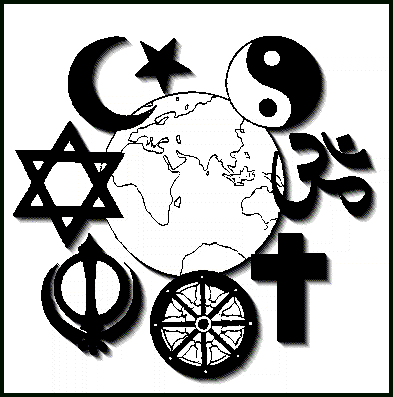
What form of secularism would religious minorities prefer?
Activists and members of the civil society often brand themselves as upholders of secularism. Actually, what they really do is propagate a concept that is labeled secularism but in reality is a process of modifying our lifestyles to conform with the laws and practices of two of the world's largest religions. In other words, secularism, as practiced in India is actually soft or creeping conformation to religious concepts of religious minorities.
The Supreme Court of India in a judgement (Page 19) stated: "The real meaning of secularism in the language of Gandhi is Sarva-Dharma-Samabhav meaning
1. Secularism means Sarva Dharma Samabhav: Will our religious minorities agree to give equal respect to all religions? This means Muslims would have to accept that Allah is not the only God, likewise for the Christians. Muslims and Christians are likely to reject this idea of secularism even if it amounts to rejecting a judgement passed by the SC because respecting "false gods" is blasphemous. In fact, it amounts to "shirk" in Islam and according to Islamic scholar Javed Ghamidi, is the only unpardonable sin in Islam.
2. Secularism means indifference to all religions: This stand would require a permanent end to all religion based quotas, freebies, and outrageous notions like "Muslims have first right on our natural resources". Will Muslims accept an end to all freebies including the Haj subsidy? Will Christians in secular Mumbai agree to not overrule SC orders like they did here? Will Muslims in secular Delhi promise to not overrule HC orders like they did here? Will MP Asaduddin Owaisi stop coercing people to convert to Islam (at least not during prime time TV debates on NDTV)? In short, will religious minorities accept that law of the land would always overrule their respective religious laws and hence mean an end to religious personal laws? We know what the answers will be like, don't we? That leaves us with the most preferred option.
3. Secularism means "To each ( religious group) its own": This is the form of secularism that is commonly practiced in India . Unfortunately, this concept is not secularism but conforming to religious concepts of minorities because it complies with what is stated in the Quran (but strangely never implemented in Islamic countries). The Quran allegedly states "tumhe tumhara din mubaraq, hamein hamara" which translates into "to each his own". Very convenient isn't it? It allows apologists of Islam to defend Muslim personal laws, laws that often contradict common sense and basic humanity. Christian missionaries love it too (but not in their own backyards though) because it gives them a free hand to convert unsuspecting natives with impunity under the protective shield called minority rights.
Having listed the three definitions of secularism, I would like to pose this question to the religious minorities of India . Which form of secularism do you really want, 1 or 2? You can't pick 3 because conforming to religious concepts of minorities is not secularism. This farcical definition that Islamists want to propagate is not acceptable to me and other law abiding dharmic citizens of this country.
Trishool is a friend of CRI and can be followed at @TRISH00L